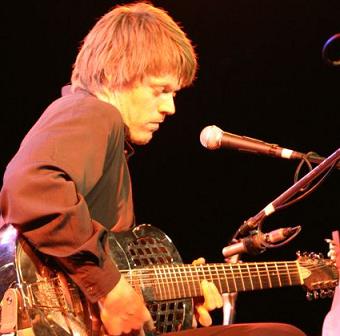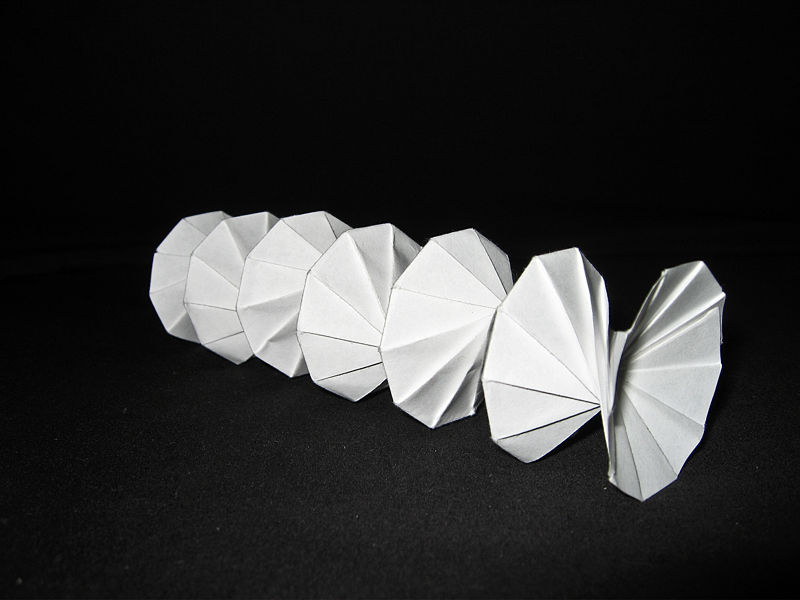Tracking Tunes with Technology
Interview with
Meera - Some recent projects in the field of technology have been in the production and tracking of music. I've come to London to meet up with our resident tech expert, Chris Vallance, for a coffee to chat about these recent developments. Chris, one piece of news is a way to follow your favourite band...
Chris V - Yes, I thought I'd talk about this because it's got a Cambridge connection. This is a start-up company called Songkick. It's a new tech venture and it basically aims to be a kind of Lastfm for live bands. [LastFM is a music recomendation service - you log in, tell it which bands you like and it will create a playlist of other music that you should like] The idea is that it knows the kind of music you like, it follows what you listen to on your computer and tells you when bands you might like come to town. There are lots of sites, if I type "Bands in town" Lastfm will also do it as well.
What's interesting about Songkick - two of the Songkick founders are Cambridge University graduates and there's the Cambridge connection - is the way in which Songkick picks up on bands that don't actually have any real big recording deal. These might be the people who practise in their bedrooms who play the pub once a week. How do you find out about bands like that? Songkick uses something very clever, it uses what's called semantic search. In other words it looks at webpages, it looks at blogs and what people are writing and tries to draw out some of the meaning using that to figure out, 'what does the person who's written this like? What kind of music do they like?'
Meera - So it can get you interested in new music as well?
 Chris V - Yeah, the idea is that it captures the bands who really just don't register on the radar of things like iTunes, for example. People who don't have music deals. I spoke to Ian Hogarth who's a founder of the site and he explained a little bit more about how their technology works...
Chris V - Yeah, the idea is that it captures the bands who really just don't register on the radar of things like iTunes, for example. People who don't have music deals. I spoke to Ian Hogarth who's a founder of the site and he explained a little bit more about how their technology works...
Ian - You've got the first recommendation engine ever for music, for live music. Pandora, Lastfm - great recommendation engines for music. We've built one that works for live music.
Chris V - What's different about a recommendation engine for live music?
Ian - The main reason is because of the size of the bands you're talking about. The conventional long tail for music there's bands that the long tail goes down and it stops when the band isn't being recorded. It keeps going for live down to a guy who's just in his bedroom on his Myspace page. Those guys are playing live but they're not really being recorded as such. We need to find a way of recommending them. There's much less data out there on them so we have developed a kind of semantic approach to getting data for that artist such that we can recommend them.
Meera - That was Ian Hogarth, one of the creators behind Songkick, showing a new way to follow even the most remote bands out there.
Chris V - The system also tracks buzz about bands which has led to some people to worry that it might be of use to ticket tout. I guess that's going to be the case with any new technology like this. It'll be interesting to follow how this Cambridge-inspired project works.
Meera - Chris, what on Earth is that?
Chris V - This was a piece of music I was involved in the writing of because I played a visit to a very interesting project called Rise and Shine. What Rise and Shine aim to do is for a whole month they aim to write a song between the hours of seven and, I think, ten about the day's news. Ok, that's kind of interesting and they're podcasting it etcetera but why is that a tech story? Well, what I thought was fascinating was the way they were using new video tools to help write the song, to help get a community around the site. For example, the song playing process was filmed on a service called Qik which allows you to stream video from your mobile phone. It was written in the guy's flat but he managed to rig up a webcam in every room so that you could see the song writing process taking place and leave chat messages. That was using a system called Mogulus. At the same time he was getting feedback and comments on the song through a system called Seesmic. I don't know if you've used Twitter which is like a microblogging site, Seesmic is like its video partner.
Why would you try and create a song about the day's news? To find out more, Rise and Shine's founder Dean Whitbread explained the rational.
 Dean - The project's called Rise and Shine, it's on riseandshine.tv and what we have to do as writers is write a song every morning which is inspired by the news. We have a lot of input from our audience who suggest topics and give us lyrics and sometimes they give us performances to do. Today's challenge has been to write on the subject of Japanese unmanned space flight and it's Origami. They're sending Origami into space to re-enter the Earth. This is quite a serious news item that challenged. From a seven am start we've got three hours. We work pretty steadily until 9:50 when we perform the song in its entirety to a live audience.
Dean - The project's called Rise and Shine, it's on riseandshine.tv and what we have to do as writers is write a song every morning which is inspired by the news. We have a lot of input from our audience who suggest topics and give us lyrics and sometimes they give us performances to do. Today's challenge has been to write on the subject of Japanese unmanned space flight and it's Origami. They're sending Origami into space to re-enter the Earth. This is quite a serious news item that challenged. From a seven am start we've got three hours. We work pretty steadily until 9:50 when we perform the song in its entirety to a live audience.
Meera - That was Dean Whitbread, one of the musical creators behind Songaday. Chris, I have to ask, are these songs actually any good?
Chris V - They're surprisingly good given the constraints. I came up with a lyric which was the song which was about the news story of the Japanese launching a paper plane into space. The lyric I came up with was, "to boldly go where no man's gone A4."
Meera - Oh, very funny!
Chris V - You see?! So, it's all a bit like that! It is all in a good cause so I don't think we want to set the quality threshold too high.










Comments
Add a comment